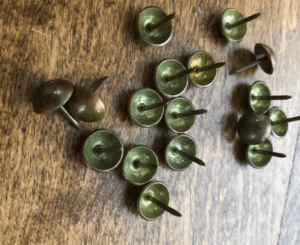In a world dominated by advanced technology and electric gadgets, the vintage hand crank grinder stands as a symbol of a bygone era. This remarkable piece of equipment is more than just a manual tool; it’s a testament to the ingenuity, craftsmanship, and practicality that once characterized everyday life. Whether used in kitchens or workshops, the hand crank grinder has a rich history and enduring legacy, making it a cherished item for both collectors and those who appreciate traditional tools.
A Brief History of the Hand Crank Grinder
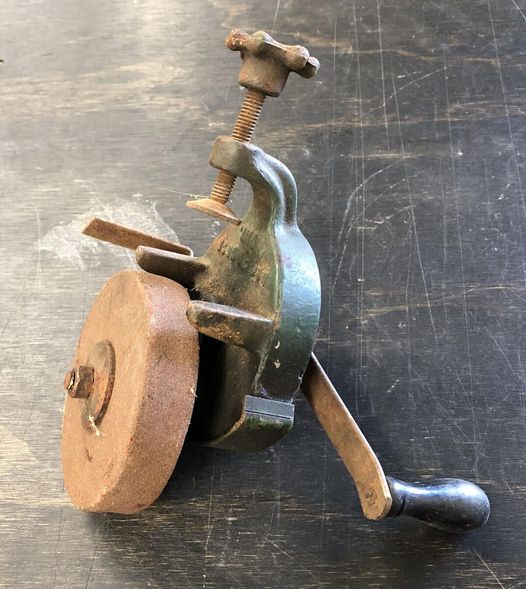
The origins of the hand crank grinder can be traced back to the late 19th and early 20th centuries. This was a time of rapid industrialization, where innovations in household and workshop tools flourished. Designed for the purpose of grinding various materials such as coffee beans, spices, and grains, the hand crank grinder became a staple in many homes and workplaces.
Durable Materials and Craftsmanship
These grinders were typically made from durable materials like cast iron, steel, and wood. Their solid construction not only ensured longevity but also reflected the high level of craftsmanship during that era. Each piece was carefully designed to be functional, reliable, and aesthetically pleasing. The attention to detail in the construction of hand crank grinders meant that many of them have withstood the test of time and are still in use today.
Practical Uses of the Hand Crank Grinder
The hand crank grinder was, and still is, celebrated for its versatility. While its primary function varied depending on where it was used, the tool proved indispensable for multiple tasks.
Grinding Coffee and Spices
In domestic settings, one of the most common uses of the hand crank grinder was for grinding coffee beans. Before the convenience of electric coffee grinders, these manual devices were the go-to tool for coffee lovers who desired freshly ground beans for their morning brew. Similarly, they were often used for grinding spices, allowing cooks to prepare fresh, aromatic spice blends for their culinary creations.
Workshop Applications
In addition to its kitchen uses, the hand crank grinder found its place in workshops and garages. Craftsmen and mechanics used it to sharpen tools, grind metal, and shape materials. Its manual operation allowed for precision and control, making it ideal for tasks that required careful attention. The consistent grinding speed provided by the hand crank mechanism ensured that users could achieve the desired results without overdoing or underperforming the task at hand.
Why the Hand Crank Mechanism Was So Effective
The design of the hand crank grinder was simple yet effective. The crank mechanism allowed users to control the speed and intensity of the grinding process. This made it particularly useful for delicate tasks like sharpening blades, where too much force or speed could damage the tool.
Manual Control and Precision
Unlike electric grinders, which can be difficult to control at high speeds, the manual hand crank allowed for slow, steady grinding. This precision was especially important for tasks like sharpening knives, where the angle and pressure of the grind could greatly affect the sharpness and durability of the blade. Additionally, the ability to control the grinding speed made it possible to achieve a consistent texture when grinding coffee beans or spices.
The Legacy of the Vintage Hand Crank Grinder
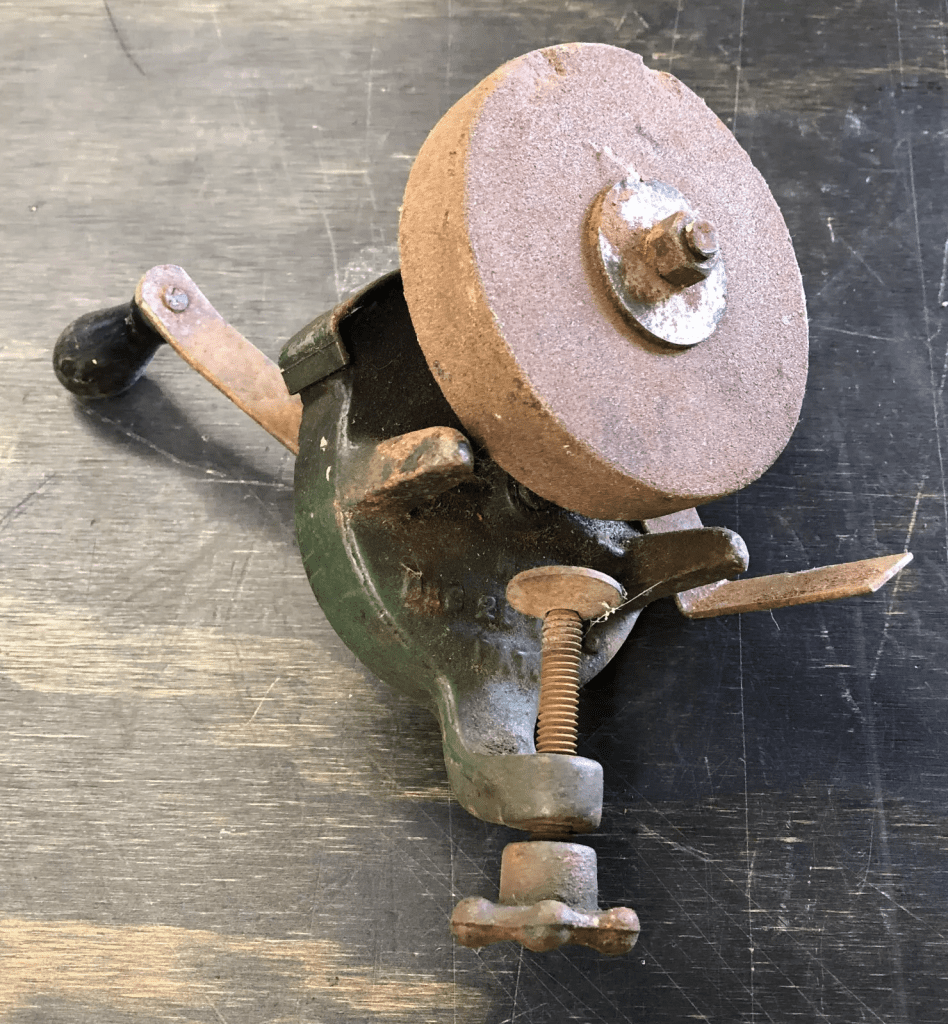
The vintage hand crank grinder is much more than a practical tool—it’s a symbol of an era when craftsmanship and self-sufficiency were highly valued. For many, these grinders represent a connection to the past, a time when people took pride in the quality and longevity of their tools.
A Collectible and Decorative Item
Today, many antique enthusiasts and collectors seek out vintage hand crank grinders for their aesthetic appeal as much as for their functionality. Restored grinders often serve as decorative pieces in modern kitchens or workshops, adding a touch of history and charm to the space. The intricate details and solid craftsmanship of these grinders make them valuable additions to any collection of vintage tools.
Influence on Modern Tools
Though modern technology has given us electric grinders and food processors, the influence of the hand crank grinder can still be seen in today’s tools. Many contemporary kitchen gadgets and workshop devices owe their basic design principles and functionality to these vintage tools. The concept of grinding, shaping, or sharpening materials with precision has carried over into modern tools, even as the power source has shifted from manual to electric.
Cultural and Historical Significance
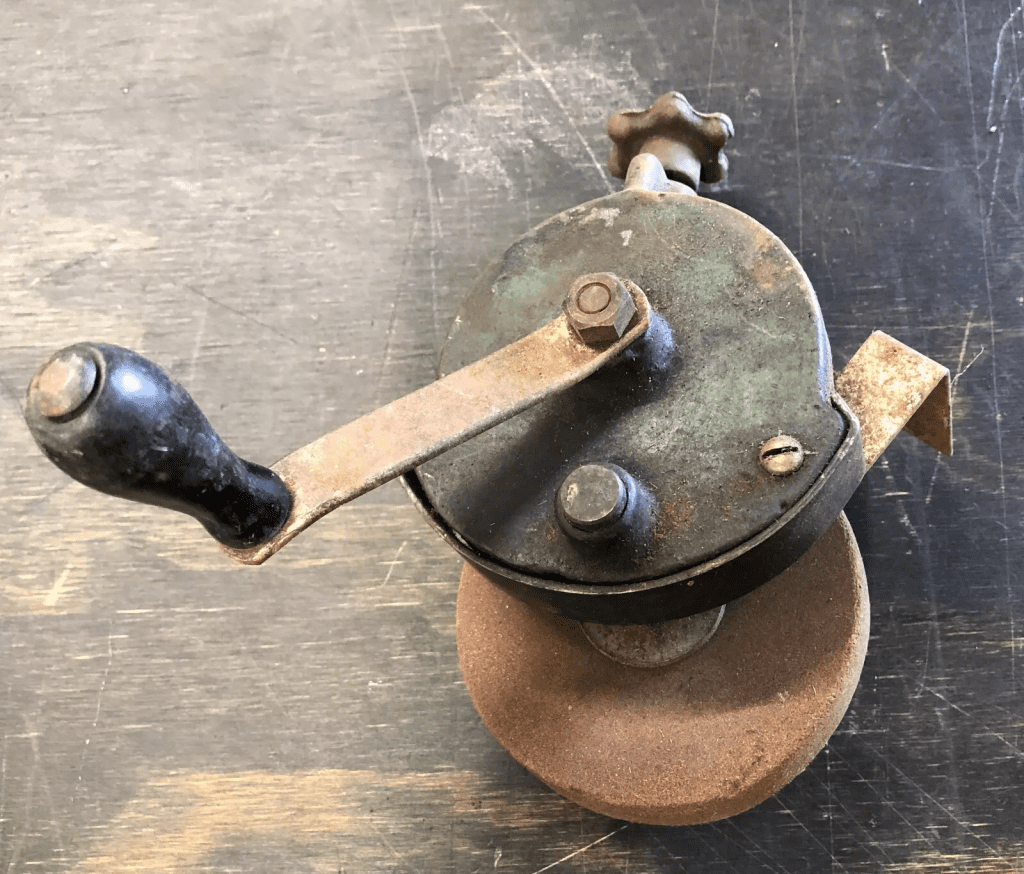
Beyond its practical applications, the vintage hand crank grinder holds cultural and historical significance. It represents a time when manual labor was integral to daily life and when tools were built to last for generations. In an age of disposable products, the hand crank grinder stands as a reminder of the value of quality craftsmanship and the satisfaction that comes from using well-made, long-lasting tools.
Symbol of Self-Reliance
For many, the hand crank grinder is also a symbol of self-reliance. Before the advent of electric appliances, individuals relied on manual tools to perform essential tasks. Whether grinding coffee for the morning brew or sharpening a blade for a day’s work, the hand crank grinder allowed people to be self-sufficient, performing necessary tasks with tools they could count on.
Why the Hand Crank Grinder Endures Today
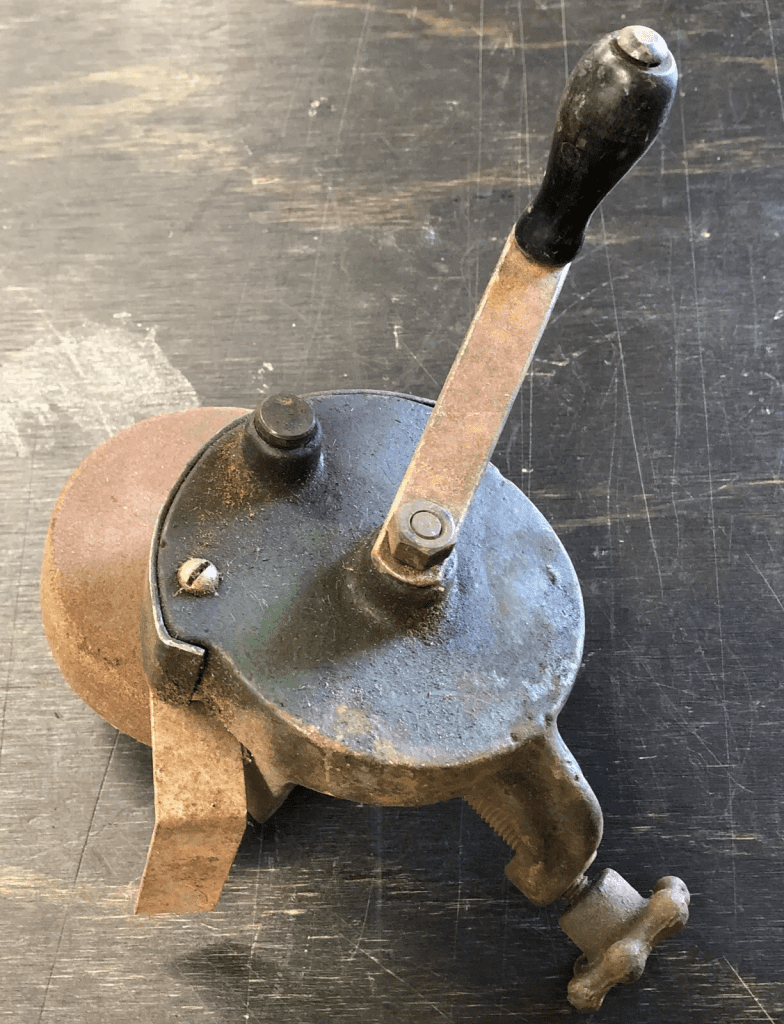
The hand crank grinder’s enduring popularity can be attributed to several factors. For one, its durability and functionality have allowed many vintage grinders to remain in use long after their original owners have passed them down. Additionally, in a world where technology is constantly evolving, there is something comforting about the simplicity and reliability of a manual tool.
Nostalgia for Simpler Times
Many people today are drawn to vintage hand crank grinders because they evoke a sense of nostalgia for simpler times. The tactile experience of using a hand-cranked device—feeling the resistance as you turn the handle and hearing the satisfying crunch of beans or spices being ground—is a stark contrast to the impersonal hum of an electric motor. For some, using a hand crank grinder is a way to reconnect with the past and slow down in a fast-paced, technology-driven world.
Conclusion
The vintage hand crank grinder is more than just a tool—it’s a piece of history, a symbol of craftsmanship, and a reminder of the value of self-reliance. Its simplicity and effectiveness made it an essential item in both kitchens and workshops of the past, and its legacy continues to influence modern tools today. Whether admired for its historical significance or used for its practical applications, the hand crank grinder remains a timeless testament to the ingenuity and craftsmanship of earlier generations.
